Why Plutocrats Are Rallying to Trump
Civic lessons won’t sway America’s oligarchs. Instead, we need forthright economic populism to bring them to heel.
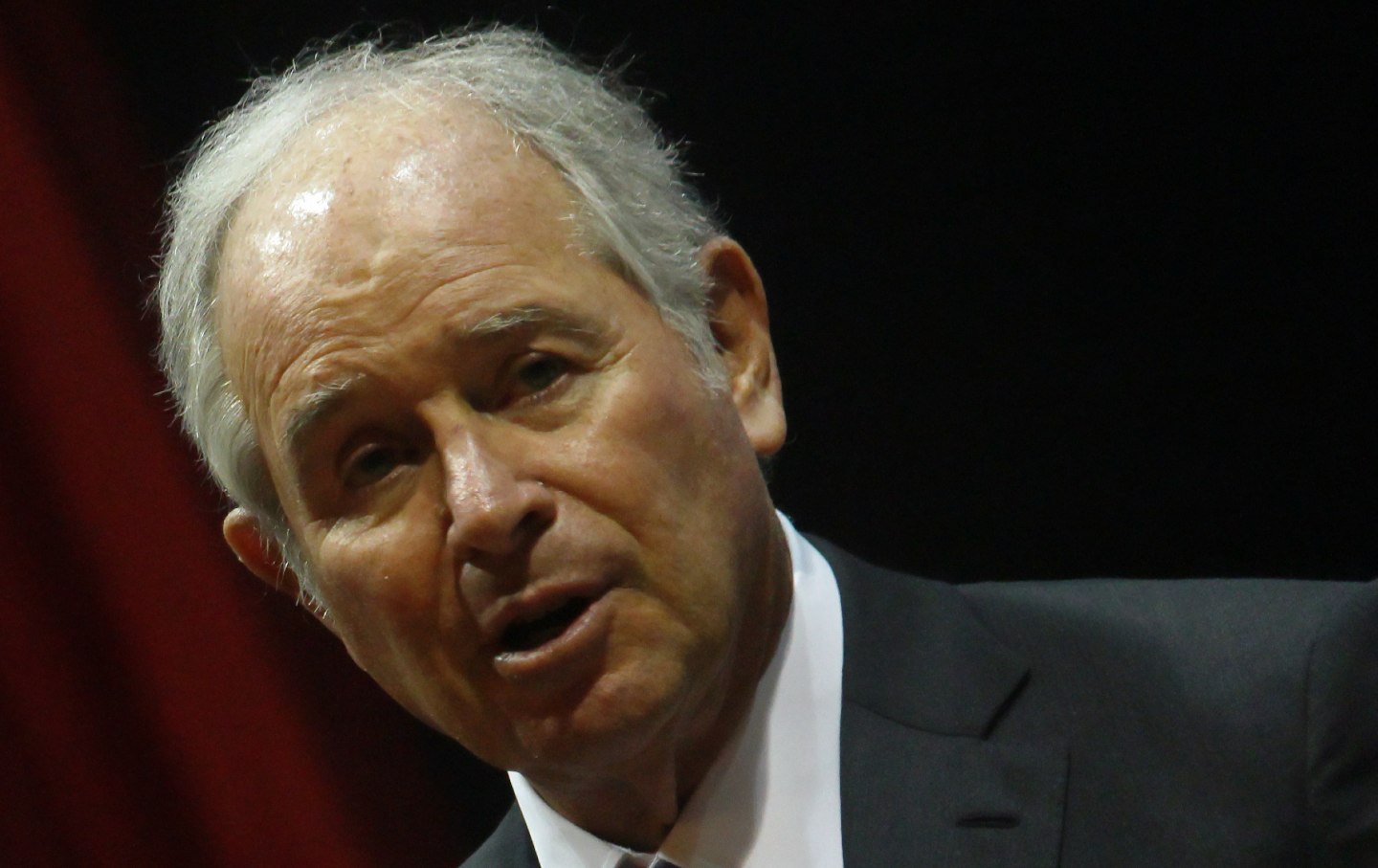
While Donald Trump’s felony conviction for falsifying business documents is hurting him with independent voters, it has only increased his popularity with a demographic cohort that is much smaller in number—but still has an outsize role to play in election outcomes: the super-rich. Axios reports that a Morning Consult poll shows that 49 percent of independent voters think Trump should drop out of the presidential race because he is a felon. This strong negative result is already in evidence in polls showing that Trump’s persistent lead over rival Joe Biden has shrunk and the presidential race is now dead even.
But this bad news for Trump, the BBC reports, has been countered by another development: “Ultra-wealthy Republican donors are rallying behind former US President Donald Trump following his historic trial and criminal conviction.” Indeed, for some tycoons, Trump’s courtroom troubles are reasons for supporting him. For Shaun Maguire, a partner in the powerful Silicon Valley firm Sequoia Capital, Trump’s long list of indictments was a “radicalizing event.”
“Bluntly, that’s part of why I’m supporting him,” Maguire wrote in a long post on X (formerly known as Twitter) announcing a $300,000 donation to Trump’s campaign. “I believe our justice system is being weaponized against him.” Aside from Maguire, the BBC lists other extremely wealthy Trump supporters, including casino owner Miriam Adelson, hedge fund manager Bill Ackman, fracking pioneer Harold Hamm, and Blackstone Group CEO Steve Schwarzman. Some of these moguls, notably Schwarzman, had previously been critical of Trump for his instigation of an attack on the Capitol as part of scheme to overturn the 2020 election results. But in recent months, they and other members of the 1 percent have decided to put their money on Trump. As a result, Joe Biden’s once formidable financial lead over Donald Trump is rapidly shrinking. In the month of April—for the first time in this election cycle—Trump started raking in more money than Biden.
In response to the rich rallying to Trump, The Economist published a polemic by LinkedIn founder Reid Hoffman arguing that investors should realize that Trump’s return to the White House would undermine the rule of law, an essential prerequisite for capitalist health. Hoffman acknowledges the “lamentable” reality “that a growing number of America’s corporate and financial leaders are opening their wallets for Donald Trump.”
According to Hoffman, many of Trump’s well-heeled supporters are motivated by a mixture of authoritarianism, fear, and greed:
He and his ideological allies have been quite explicit: upon regaining power, they intend to corrupt the legal system to use the state against political opponents. Some American elites support this autocratic agenda because in such a Trumpist regime they expect to be the new oligarchs. Others fear that opposing Mr. Trump will bring retaliation, so seek safety by pledging loyalty.
Most conventionally, of course, there is the simple siren promise of a second Trump term’s lower corporate-tax rates and softer regulatory enforcement.
In other words, a significant portion of America’s economic elite are either autocrats, cowards, or so single-mindedly rapacious that they are indifferent to the survival of democracy. But if that’s the case, then nothing is less relevant than the type of civic lesson Hoffmann is presenting on the necessity of the rule of law. Trump’s wealthy supporters are not going to be convinced by the need to preserve democracy, since they are as inherently autocratic as Trump himself. Unlike Franklin Delano Roosevelt, Donald Trump will never be a traitor to his class. He is, in truth, an accurate embodiment of it.
The autocratic tendencies of the American and global rich were well documented in a recent New Republic article by Ken Silverstein about a private WhatsApp group called Off Leash created by military contractor Erik Prince. The group consists of both business people and right-wing pundits—mostly in the United States, but also with a significant cluster in Israel and the United Arab Emirates as well as other countries. Silverstein received leaked conversations from Off Leash, which paint a dire picture of a cohort of militant and militarized aspiring autocrats.
According to Silverstein:
Prominent figures in the Off Leash crew are well known for their paleoconservative political views, but the private opinions expressed in the group chat are even more extreme and jarring than we normally see voiced publicly. Participants chirpily discussed the desirability of clamping down on democracy to deal with their enemies at home and regime change, bombings, assassinations, and covert action to take care of those abroad.
Even the wealthy who aren’t authoritarian have ample reason to support Trump. The 2017 tax cuts he pushed through were an enormous boon to them, since they were skewed toward top incomes. But these tax cuts are set to expire in 2025, unless reauthorized by the president and Congress. As Ronald Brownstein reports in The Atlantic, one of the most consequential differences between Donald Trump and Joe Biden is over these tax cuts. Brownstein notes, “The best estimates are that the Trump cuts have already cost the federal government about $2 trillion, and extending them in full for another decade starting in 2026 would reduce federal revenue by an additional $3 trillion to $3.5 trillion.” If we include the proposed taxes that Biden wants to push through and that he could achieve if he wins again with a Democratic Congress, the difference is even more stark, amounting to many trillions in taxes on the rich.
Trump’s return to the White House would literally allow the wealthiest Americans to pocket trillions that would otherwise be used for public services. This simple material fact is enough to explain why the propertied class won’t listen to civic lessons about the toxicity of Trump. They are obscenely rich and Trump will help them stay that way. In fact, he’ll allow them to become even richer than they’d otherwise be.
The fact that so many rich people are willing to abandon democracy for the sake of money they don’t even need is a great argument for economic populism. In the past, Democrats have tried to undermine Trump’s popularity by claiming that his wealth is phony. In 2016, Hillary Clinton boasted, “I love having the support of real billionaires.” Clinton touted her support from Warren Buffett and Michael Bloomberg (who was given pride of place at the Democratic National Convention in both 2016 and 2020).
But the sad truth is that Trump himself has the support of many real billionaires—and for good reason: He upholds their class interests. If the Democrats really want to rally popular support, they’d do well to mothball Bloomberg and run on good old-fashioned economic populism. Trump-loving plutocrats are a threat to democracy, and there is political capital to be reaped by highlighting that fact and promising to rein in their outsize economic power.
We cannot back down
We now confront a second Trump presidency.
There’s not a moment to lose. We must harness our fears, our grief, and yes, our anger, to resist the dangerous policies Donald Trump will unleash on our country. We rededicate ourselves to our role as journalists and writers of principle and conscience.
Today, we also steel ourselves for the fight ahead. It will demand a fearless spirit, an informed mind, wise analysis, and humane resistance. We face the enactment of Project 2025, a far-right supreme court, political authoritarianism, increasing inequality and record homelessness, a looming climate crisis, and conflicts abroad. The Nation will expose and propose, nurture investigative reporting, and stand together as a community to keep hope and possibility alive. The Nation’s work will continue—as it has in good and not-so-good times—to develop alternative ideas and visions, to deepen our mission of truth-telling and deep reporting, and to further solidarity in a nation divided.
Armed with a remarkable 160 years of bold, independent journalism, our mandate today remains the same as when abolitionists first founded The Nation—to uphold the principles of democracy and freedom, serve as a beacon through the darkest days of resistance, and to envision and struggle for a brighter future.
The day is dark, the forces arrayed are tenacious, but as the late Nation editorial board member Toni Morrison wrote “No! This is precisely the time when artists go to work. There is no time for despair, no place for self-pity, no need for silence, no room for fear. We speak, we write, we do language. That is how civilizations heal.”
I urge you to stand with The Nation and donate today.
Onwards,
Katrina vanden Heuvel
Editorial Director and Publisher, The Nation
More from
Jeet Heer 
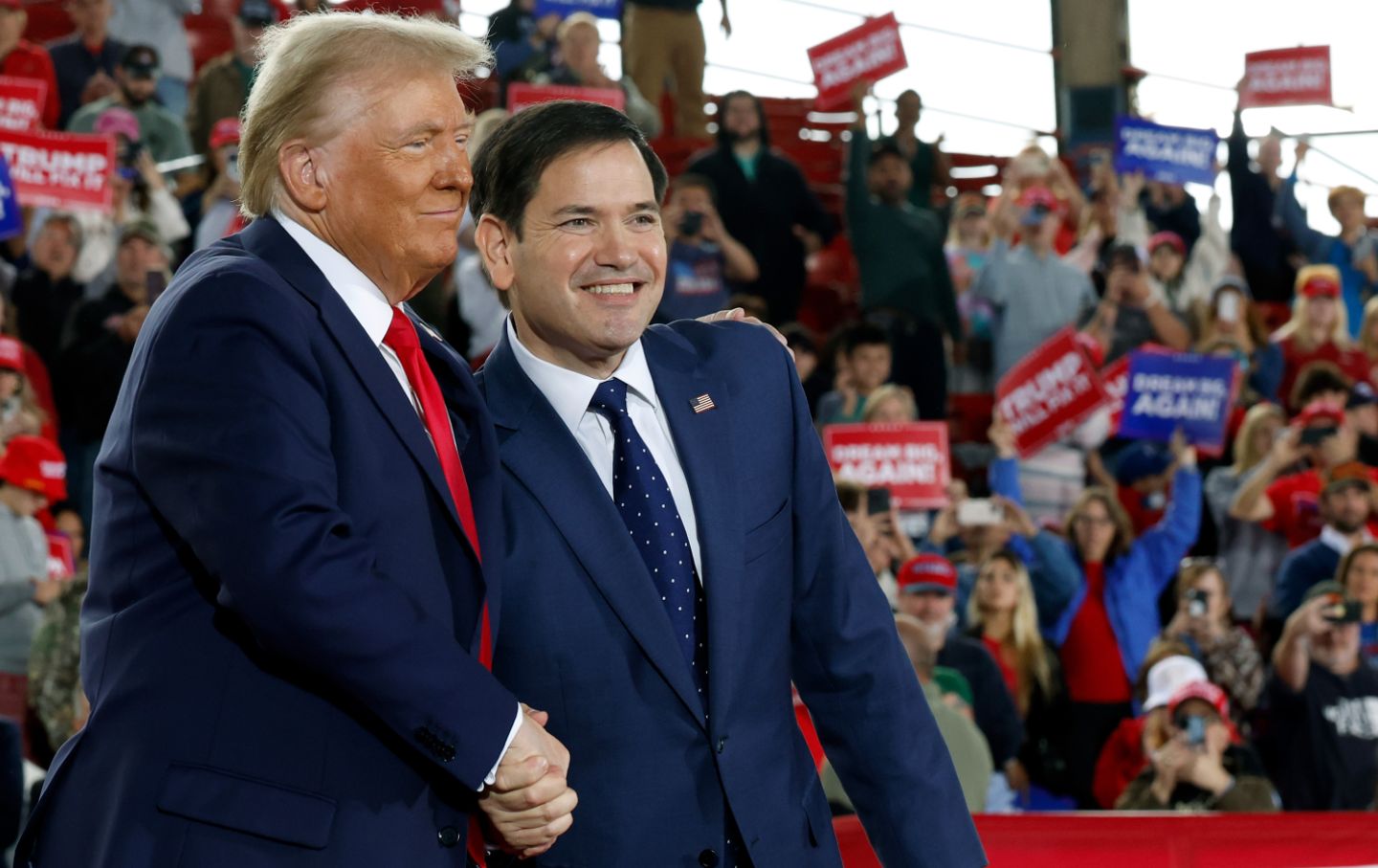
Donald Trump’s Foreign Policy Will Be Chaos First, Not America First Donald Trump’s Foreign Policy Will Be Chaos First, Not America First
His team of cronies includes establishment hawks and cranky outsiders who are more likely to deliver global anarchy than world peace.
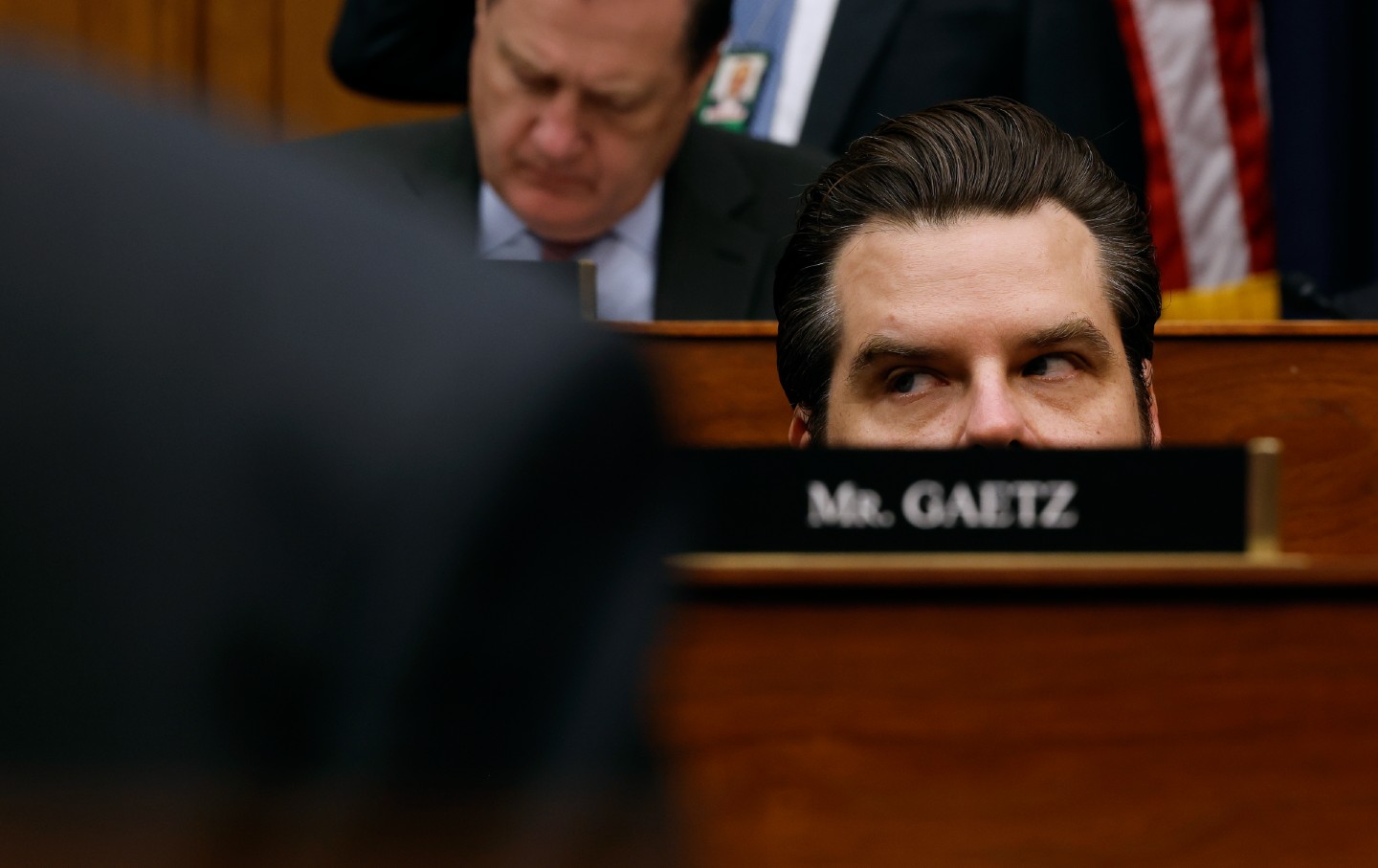
Donald Trump Is Waging a Shock-and-Awe War Against His Own Senate Donald Trump Is Waging a Shock-and-Awe War Against His Own Senate
By nominating Matt Gaetz and other dangerous cronies, the president-elect is testing congressional servility.
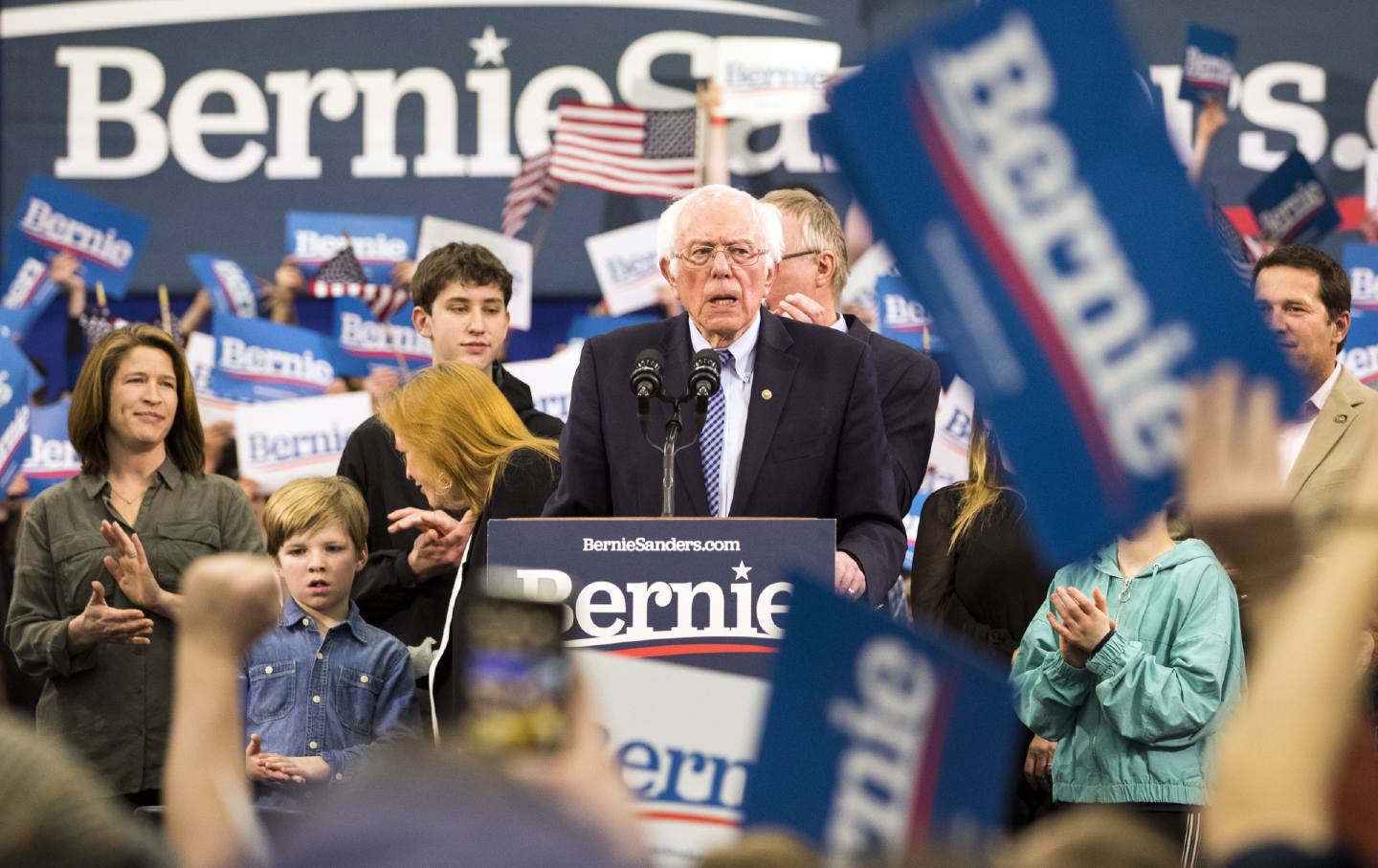
Bernie Sanders Is Right: Democrats Have Abandoned the Working Class Bernie Sanders Is Right: Democrats Have Abandoned the Working Class
The party chased former Republicans and rich donors, while alienating the working-class majority.
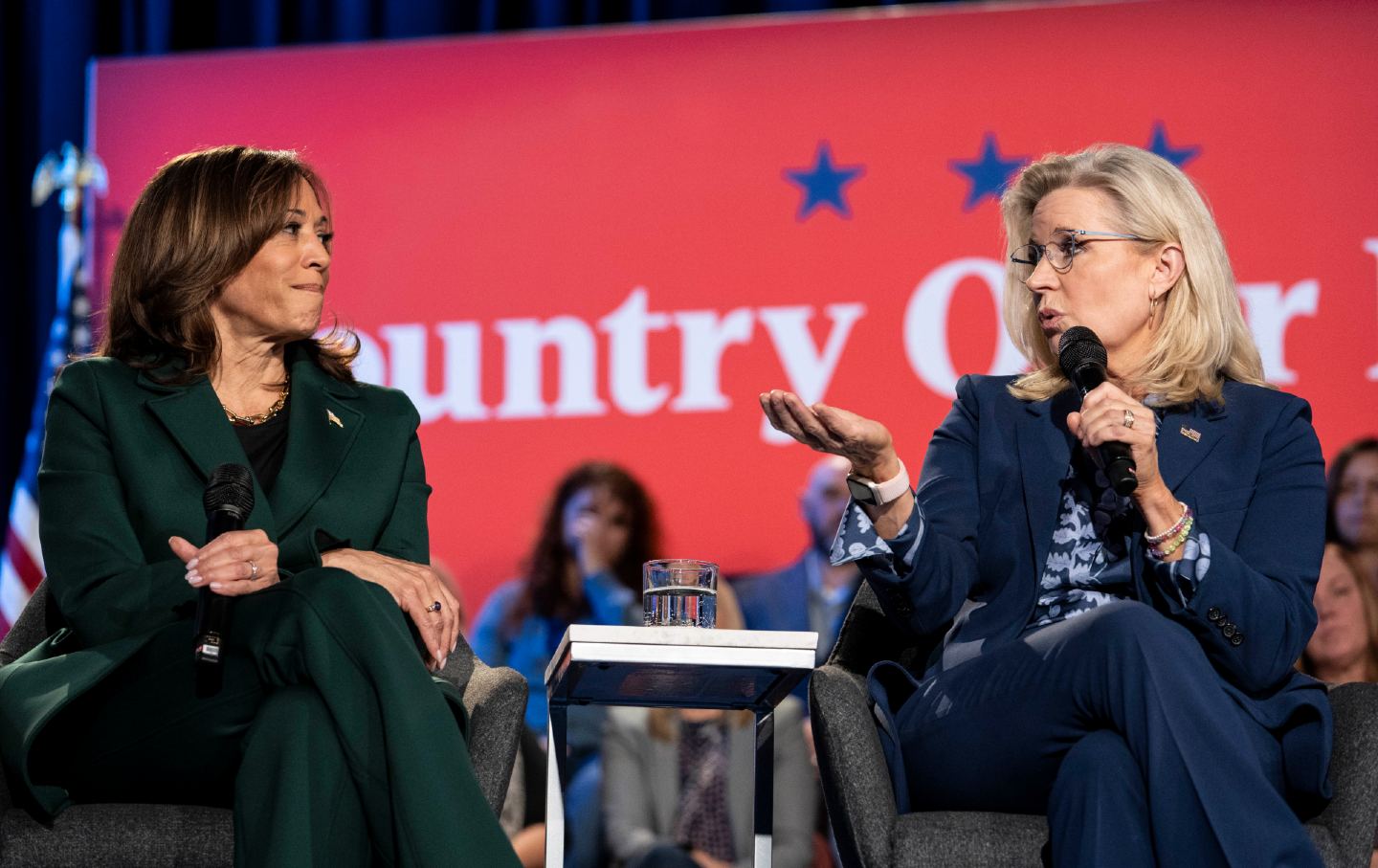
This Time We Have to Hold the Democratic Party Elite Responsible for This Catastrophe This Time We Have to Hold the Democratic Party Elite Responsible for This Catastrophe
Trump won because the opposition party is committed to ancien régime restoration in a country that desperately wants change.
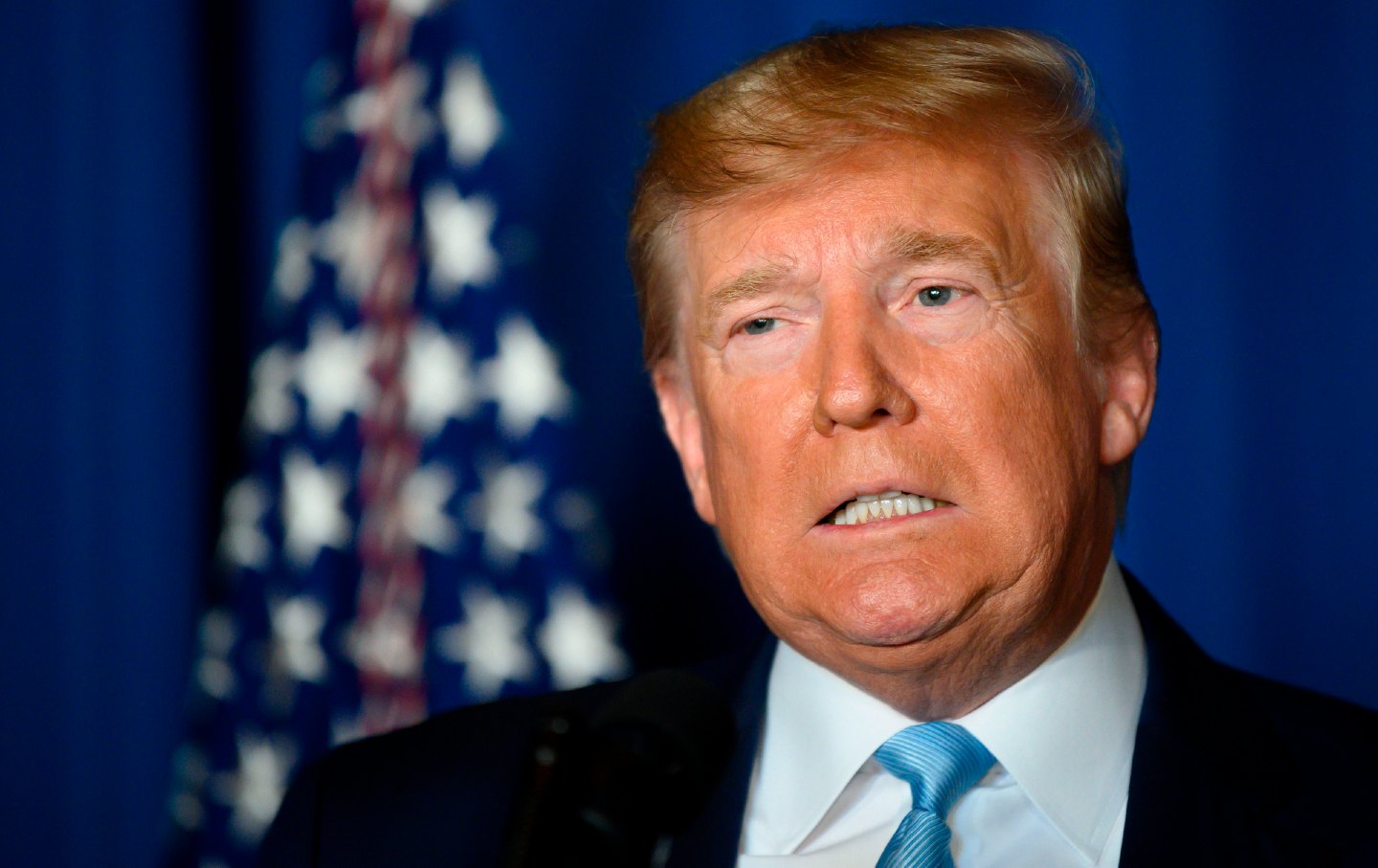
Trump’s Anti-War Charade Deserves a Challenge Trump’s Anti-War Charade Deserves a Challenge
It’s a grave mistake for Democrats to let Trump be the only voice expressing revulsion at militarism.
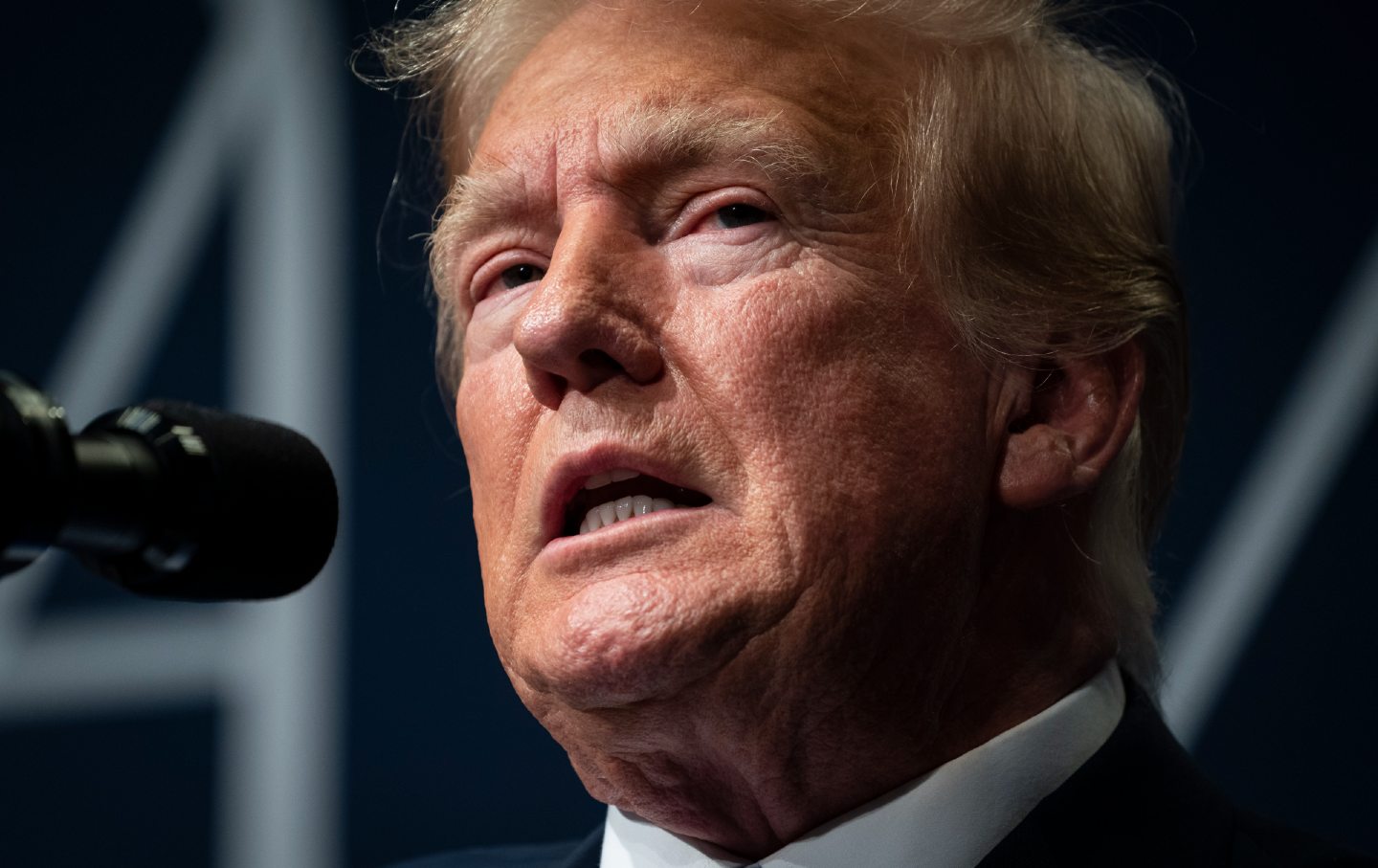
Donald Trump Makes American Women an Offer They Can’t Refuse Donald Trump Makes American Women an Offer They Can’t Refuse
The former president wants to turn gender relations into a protection racket.


